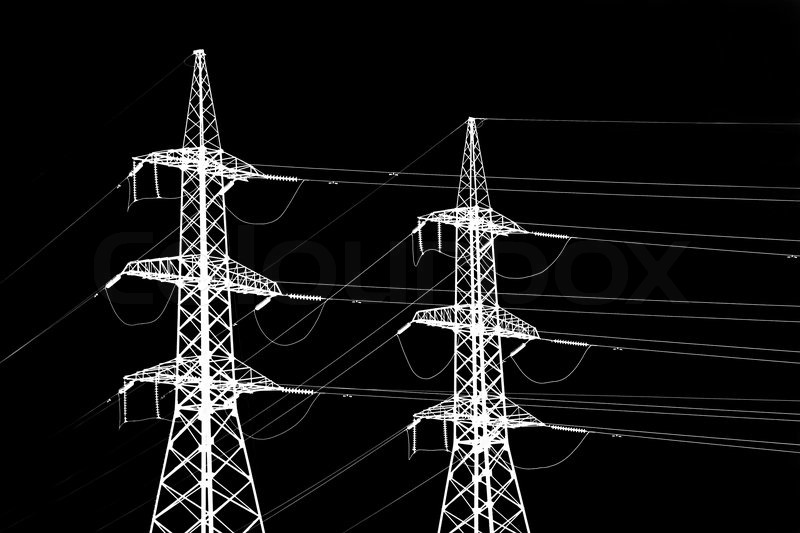- Power Grid Suffers Total Collapse, TCN May Expel Discos
The nation’s power grid recorded its eighth total collapse this year on Sunday, plunging consumers across the country into blackout for some hours.
The government-owned Transmission Company of Nigeria, which manages the grid, blamed electricity distribution companies for the system failure, which it said occurred at 9.10 am.
Total generation stood at 3,825 megawatts as of 6.00 am on Sunday, compared to 3,260.9MW on Saturday, the data obtained from the Nigeria Electricity System Operator, an arm of the TCN, showed.
The grid suffered four total collapses in January and one each in February, April and May, according to the system operator.
Enugu Electricity Distribution Plc had announced on its Twitter handle on Sunday afternoon that “the present loss of supply in the entire South-East is as a result of a system collapse which occurred at 09.21 am of today, 30th June, 2019.”
“This is as a result of a fire outbreak on Benin 330KV transmission line reactor. As a result of this unfortunate development, there is zero supply to all customers in our franchise areas as all our injection substations are affected,” it added.
Another Disco, Kaduna Electricity Distribution Plc, also informed its customers about the system failure from the national grid.
“We are currently experiencing a system collapse from the national grid, hence the power outage in our franchise states. Normal supply to our customers will resume as soon as the national grid is back up and stable,” it said on Twitter.
The TCN, in a statement made available to our correspondent around 6.28 pm, said the national grid experienced a system collapse today at 9.10 am due to high voltage following a massive drop of load by the electricity distribution companies.
It said the high voltage also caused a fire incident in the 75MX reactor in the Benin Substation, Sapele Road in Benin City, Edo State.
“The massive load drop led to high voltage in the system, which shattered the lightning arrester in close proximity to the 75MX reactor in Benin Substation. The shattered lightning arrester porcelain hit the reactor bushing, causing a further explosion on the reactor and resulting in a fire outbreak.”
The TCN said the restoration of the grid commenced immediately and as of 1.30pm, bulk power supply to most parts of the nation had been restored.
The company said it had commenced the movement of another reactor to Benin City to replace the burnt reactor and ensure voltage stability in the city as well as prevent a re-occurrence.
It said, “Management would also ensure a review of the entire protection and earthing system nationwide. This is done in addition to the overall upgrading of the system through the TREP programme being financed by multi-lateral donors.
“The installation of three reactors on the Ikot-Ekpene-Ugwuaji–Jos line has reached an advance stage. It is expected that once these three reactors are installed and inaugurated, the grid would be further stabilised. TCN management wishes to assure Nigerians that it is doing everything possible to modernise, upgrade and stabilise the national grid.”
Meanwhile, the TCN has said it may expel some Discos from the market as a result of their inability to provide their security cover.
Last week, the Market Operator, an arm of the TCN, ordered the suspension of Enugu Electricity Distribution Company, Ikeja Electricity Distribution Company and Eko Electricity Distribution Company from the MO-administered markets for failing to renew their security cover.
According to the TCN, security cover when so required of an amount established by Market Operator to serve as a form of guarantee of payment for all amounts due from the participant to the MO.
The Managing Director, TCN, Mr Usman Mohammed, in a telephone interview with our correspondent on Sunday, said Enugu Disco was given a disconnection notice while Ikeja and Eko Discos only got a notice of suspension from the market.
He said if they don’t make good within a certain period of time, the next thing that will happen is that they will be expelled, and when they are expelled, it means that the Nigerian Electricity Regulatory Commission will be notified that those people are incapable of meeting their responsibilities in the market, so NERC should invoke its business continuity regulation to ensure that they are replaced.
“We did not disconnect Eko and Ikeja Discos because the gravity of their offence did not warrant that. But in Enugu, we disconnected some lines. When they (Enugu Disco) make good, they will be restored to the market. But if they don’t, they will go to the next level, which is expulsion.”

 Naira4 weeks ago
Naira4 weeks ago


 Naira4 weeks ago
Naira4 weeks ago


 Naira3 weeks ago
Naira3 weeks ago


 News4 weeks ago
News4 weeks ago
 Travel4 weeks ago
Travel4 weeks ago




 Naira3 weeks ago
Naira3 weeks ago


 Jobs3 weeks ago
Jobs3 weeks ago
 Naira3 weeks ago
Naira3 weeks ago


















